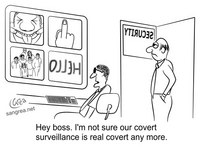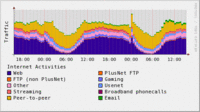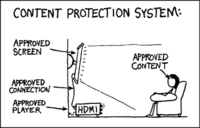
Here’s what happens when you have a telco thinking the Internet
is subject to its internal policies and political predilictions:
Saying it had the right to block “controversial or unsavory” text
messages, Verizon Wireless last week rejected a request from Naral
Pro-Choice America, the abortion rights group, to make Verizon’s mobile
network available for a text-message program.
But the company reversed course this morning, saying it had made a mistake.
“The decision to not allow text messaging on an important, though
sensitive, public policy issue was incorrect, and we have fixed the
process that led to this isolated incident,” Jeffrey Nelson, a company
spokesman, said in a statement.
“It was an incorrect interpretation of a dusty internal policy,”
Mr. Nelson said. “That policy, developed before text messaging
protections such as spam filters adequately protected customers from
unwanted messages, was designed to ward against communications such as
anonymous hate messaging and adult materials sent to children.”
Mr. Nelson noted that text messaging is “harnessed by organizations
and individuals communicating their diverse opinions about issues and
topics” and said Verizon has “great respect for this free flow
of ideas.”
—
Verizon Reverses Itself on Abortion Rights Messages,
By Adam Liptak,
New York Times,
September 27, 2007
Is the Internet a public network, or isn’t it?
If it is, I don’t see why any ISP should be blocking
messages based on content.
(Spam is a different matter: spam is unsolicited.)
There are various opinions as to what laws, if any,
cover text messages.
But the main point isn’t even legal.
If the telco-provided network isn’t a public network,
it’s not the Internet.
-jsq
 This is the path to net neutrality:
This is the path to net neutrality:







